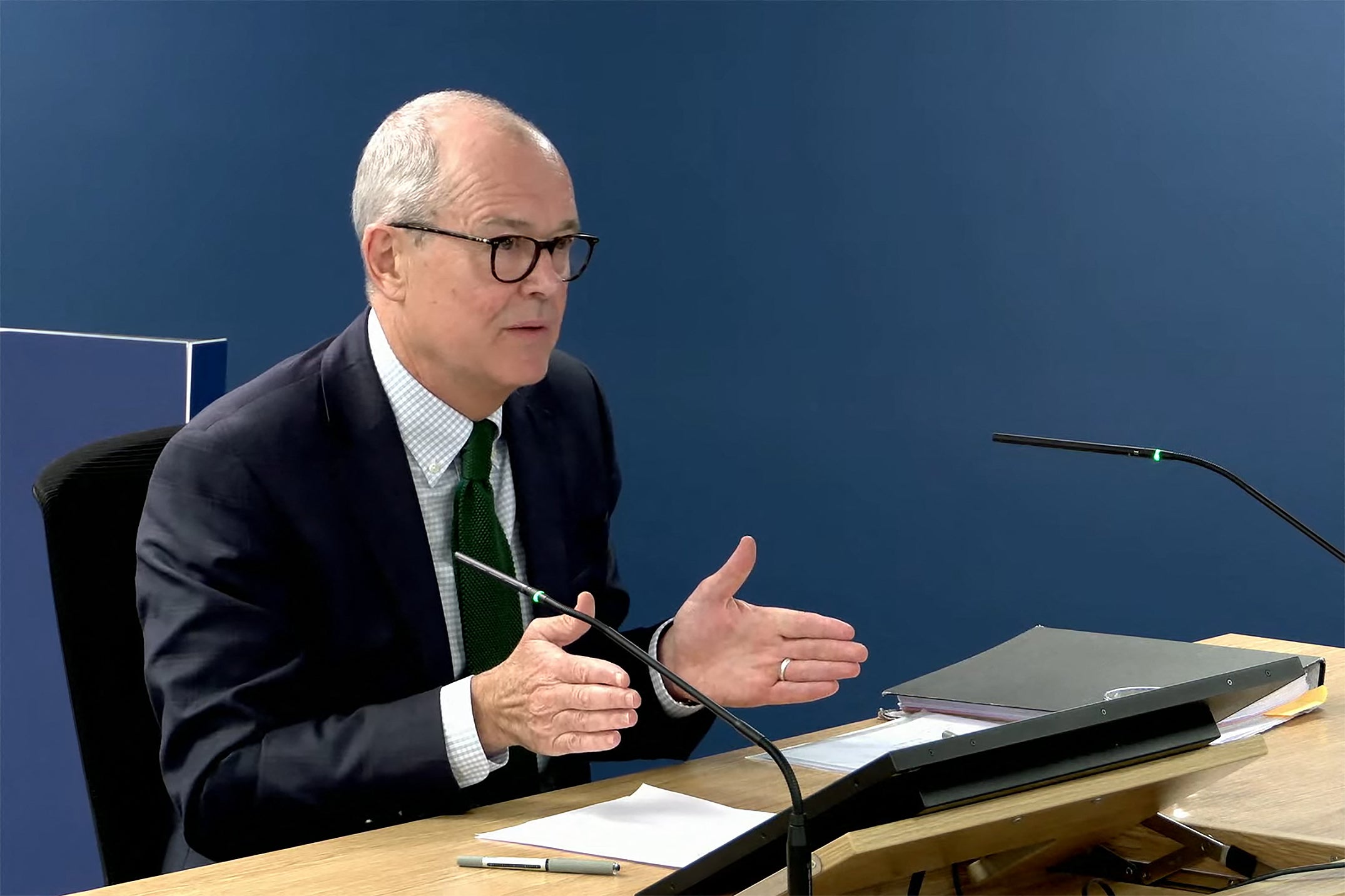Covid inquiry revelations show the value of an honest diary
The best diaries provoke as much thought as they record, says Sean O’Grady


Sir Patrick Vallance’s diaries – a nightly “mind dump” he undertook during the pandemic – have acquired great importance during the official Covid-19 Inquiry. They contain his private, unvarnished views on the official response to the pandemic, and some especially damaging remarks about the performances of Boris Johnson and (to a lesser extent) Rishi Sunak.
We ought not to be surprised: revelatory diaries are nothing new, and appearing in them is an occupational hazard for those in public life and showbusiness.
Why have these diaries become public now?
For the Covid-19 Inquiry, chaired by Lady Heather Hallett. They are being treated as evidence, and extracts cast a bright light on the way officials and ministers operated during the crisis. Like Johnson’s notebooks, and thousands of WhatsApp messages and emails, they are an invaluable contemporary record.
But, also remember that none of this was supposed to be happening before the general election. Johnson planned to have an election in the summer of 2023, so that his glorious, radical second term in Downing Street would be well underway long before any damaging revelations from a public inquiry. Instead, the lines are emerging in excruciating detail just at the wrong stage in the electoral cycle.
How bad are they for Mr Sunak?
Worse than for Mr Johnson, arguably, because Mr Sunak’s reputation in handling the pandemic was hitherto comparatively good. His furlough scheme, and assorted measures, saved the economy and millions of families from ruin.
Evidence at the inquiry so far suggests that Mr Sunak, who was then chancellor of the Exchequer, may have placed a greater weight on protecting the economy than previously assumed.
In a diary entry for 25 October 2020, Sir Patrick notes how Dominic Cummings had relayed what he claimed to have heard at a meeting involving Mr Johnson and Mr Sunak. Sir Patrick quotes Cummings as saying: “Rishi thinks just let people die and that’s okay. This all feels like a complete lack of leadership.”
Even allowing for this being third-hand information, the impression is undeniably negative. The fact that Mr Sunak apparently did not gain approval from Sir Patrick or chief medical officer Chris Whitty for Eat Out to Help Out has also met with criticism.
Wasn’t Sir Patrick rude about Mr Johnson?
Yes, but so much has been revealed about how the “chaotic” PM was “oscillating” like a “trolley”, that Sir Patrick is merely confirming an established picture of a man he calls a “weak and indecisive” leader. The diaries also show that Mr Johnson was unable to grasp the concept of exponential progression, appeared “confused” about different types of test, and had his “head in [his] hands a lot”. No surprise there.
Are published diaries believable?
Sir Patrick says he recorded his thoughts privately as a form of therapy, put them in a drawer, never referred to them, and did not expect them to ever see the light of day. You might argue that was wrong, in the sense that it soon became plain to some that some kind of a public inquiry would eventually be needed.
Most social or scientific dairies, such as those of Samuel Pepys, John Evelyn, Charles Darwin and Marie Curie, were composed without the expectation of contemporaneous publication; many were posthumous. Kenneth Williams, a brilliant writer, was so vicious and libellous about some of his contemporaries that his unedited manuscripts can only be inspected by special arrangement.
Modern political diaries, purposefully written for publication, financial gain, and self-protection, are often criticised as intended to make the writer look good for posterity. The many volumes produced by Tony Benn and Alistair Campbell come into this category; those of less vain or prominent personalities, such as Alan Clark, Gyles Brandreth and Chris Mullin, tend more towards the self-critical and confessional.
Do they make for a good read?
Yes, and not just for the politics but also sometimes for insightful or unexpected observations about contemporary events. Richard Crossman, Oxford don-turned Labour politician, intended his works to “provide a unique historical record of how British cabinet government operated in the 1960s”. That they did, but at this distance there’s more entertainment in his dry, detached view of the world – and beyond. Here is his entry about the second round of moon landings, on Saturday 22 November, 1969.
“The only thing in the news today was the American astronauts’ second landing on the moon. The lack of interest is astonishing. I had always thought it would be an anti-climax but in this case the rapidity of the fall-off is phenomenal. I think it’s got something to do with the fact that the action is not intrinsically interesting. Once it has been shown that they can land accurately with absolute precision and walk about in their space suits, there is very little they can do which is interesting and relevant, so the only excitement is whether they get killed or not. I hope that people will now begin to consider whether it is worth investing these vast sums in the technology of space travel. Is it really justifiable to divert them from other more helpful scientific activities?”
Thus the best diaries provoke interesting thoughts as well as record them. Perhaps in due course, Sir Patrick’s will do the same.






Join our commenting forum
Join thought-provoking conversations, follow other Independent readers and see their replies
Comments